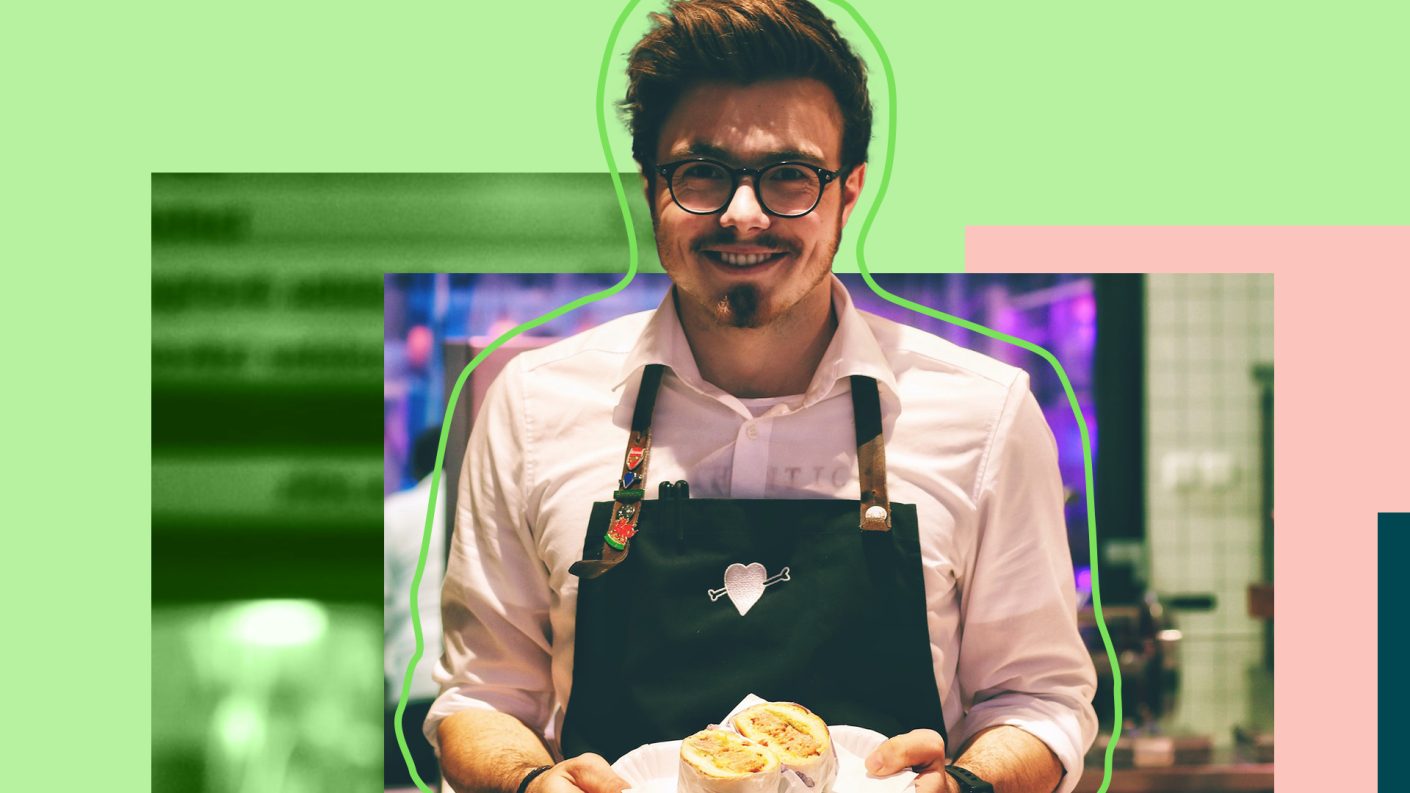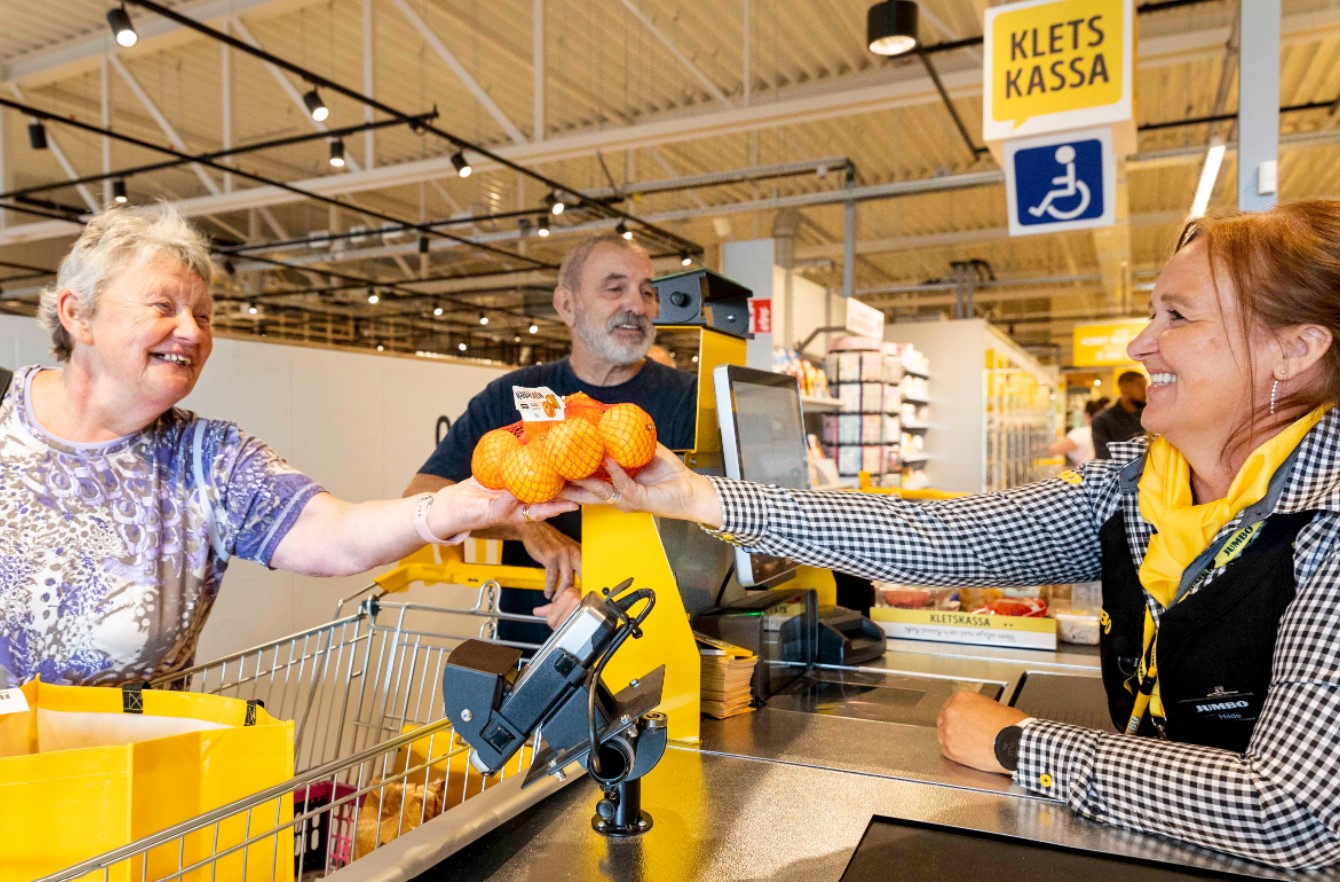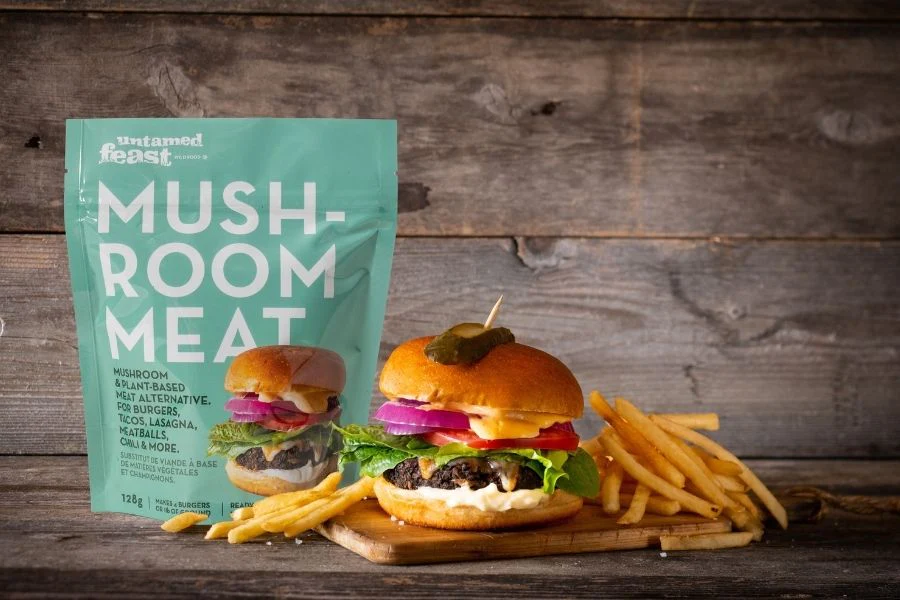Blog
4 Trends in food and beverage
How brands in food and beverage can support consumers’ quest to more meaningful lives.


Shaun Johnston
30 March 2023
6 min read
As we navigate a time where people are reflecting on what truly matters to them. In our What Matters 2023 report, we identified twelve shifts in human needs that will help you make sense of what lies ahead and what your role as a brand or company could be.
What Matters 2023 identifies four drivers of meaning:
- Stronger Connections: how individuals are seeking connections that enrich and energize, rather than absorb them.
- Deeper Narratives: the importance of how narratives can describe us, but not define us.
- Supportive Systems: how individuals are in search of systems that give back, rather than extract from us.
- Wonder Integrated: the pursuit of wonder as an integral part of life, rather than a distinct domain.
But what do these mean for Food & Beverage? We’ve highlighted one trend per meaning driver that we believe are, or will be, impacting Food & Beverage categories most. As we explore these trends, we’ll note some of the category shifts that both challenge our thinking and offer great opportunities for innovation.
Social Health
We’re beginning to understand the profound impact that social interactions can have on our emotional, physical, and mental well-being. Our ‘social health’, and how interactions with others can affect our well-being, is becoming increasingly important, and people are taking steps to ensure these connections are healthy and positive.
Brands have the opportunity to support their customers in building healthy social connections. Whether it’s through creating safe spaces for discussion, fostering a sense of community, or promoting healthy communication, brands can be the guardians of social well-being.
Eatgether is a social networking app, developed in Taiwan, that invites strangers to eat meals together. Eatgether attempts to battle loneliness by creating social connections that encourage people to eat together. Whether people hate eating alone or are looking to meet in ‘kitchen communities’, Eatgether brings people together in face-to-face conversations to cook and eat together like a family, particularly for older people or those living in isolation.
The Dutch supermarket chain, Jumbo, launched a scheme that also helps bring people together and promote mental well-being. It recently opened around 200 ‘chat checkouts’ in shops to help combat loneliness among the elderly. This service enables elderly shoppers to chat, rather than rush, helping people create richer social connections in everyday life.
It leads Food & Beverage brands to ask how they can bring this ‘togetherness’ into their products. How can we make a breakfast or lunch product that forces people to sit together and chat around a table? Can we create a meal that pushes people to cook together? Asking these questions is important to help brands design future products that nurture more of this ‘Social Health’.

Into the Nuance
As society continues to deconstruct inherited views and perspectives on identity, people are seeking the flexibility to choose how they frame their lives. This search for self-understanding involves exploring various aspects of the self, from a neurological to a cultural lens, to develop a more nuanced sense of personal experience. In our information-rich world, physical and mental health take centre stage, prompting exploration and communication about how we feel, think, function and why.
Brands have an opportunity to empower individuals through expert opinion, information, and personalisation, adding value to the emerging identity topics people are exploring. However, they must also establish product credibility in their journey for hyper-personalisation.
Supplements are a category that already dominates in this area and provides consumers with super-nuanced and personalised nutrition. Supplements are both a rational and emotional product. Many consumers take them on a day-to-day basis to aid their overall health or give them a boost, but at the same time, they are a way for consumers to feel like they are taking control of their health and body.
Guud is aiding women’s physical health through supplements, whilst also destigmatising taboos around menstrual health and offering an expert opinion to get a more nuanced sense of what they are experiencing and why. Similarly, Perfectly Me is a brand of ‘drinkable vitamins’ that are uniquely formulated to support women’s changing health and well-being needs at different life-stages. It targets primarily pregnant women and those experiencing menopause, offering solutions to personal nuances experienced by women during these life stages and helps with specific nutritional needs.
The ‘Into the Nuance’ trend can be a physical nuance, a mental nuance, or even a life stage nuance. And this trend is not new to Food & Beverage, but what it highlights is that there are numerous hooks for brands to anchor their story in. Brands must consider how to embed these physical, mental, and life-stage nuances into their products.

Local Flourishing
As the world continues to change, we’re becoming increasingly aware of the flaws and weaknesses in our systems. From the pressure some organisations put on people and planet to the limitations of globalization, we’re recognising the need to become more self-sufficient. That’s where the ‘Local Flourishing’ trend comes in.‘Local Flourishing’ is about investing in networks that are more supportive of the ‘local’ and robust in the face of change. It’s about finding alternative systems that provide stability, care, support, and resilience. As a niche trend, it presents opportunities for Food & Beverage brands.
Created around this trend is DELLI, which is an app that supports local makers and creators. DELLI encourages people to buy from local, independent food makers but also enables them to become creators who can cook something and go on to sell it to their local community. Users can support local businesses whilst eating local at the same time.
Also part of the ‘Local Flourishing’ trend and the wider sustainability movement is the growth of the ‘Locavore’. An extension of the term’s ‘carnivore’ and ‘herbivore’, a locavore is a person who looks to only eat or drink anything that is sourced and produced within a 100-mile radius. With this, there is a whole pick-your-own movement where people can collect their own fresh produce. This collective movement of locavores and DIY fresh produce is booming, and it is founded around being local and getting closer to the role of a forager. Similarly, Pickyourown.org is a website that highlights all the pick-your-own initiatives across the globe and provides an array of best practices on how to cook, shop and source foods.
Pernod Ricard is a great example of a multinational company that has embedded local thinking and the idea of the locavore into one of its brands. The ‘Our Vodka’ line has set up micro-distilleries around the world and hired regional distillers who can source local ingredients to create a local vodka. Creating a range of ‘Our London’ or ‘Our Berlin’ Vodka not only supports the local community but also creates a feeling of local pride and adheres to the popularised ‘Made-in’ products. Plus, locavores would love it! This approach is a great way for a global brand to step up and find a solution through decentralized thinking and local initiatives.
There are a lot of prospects here for Food & Beverage. It presents an opportunity for brands to connect with consumers who are looking for sustainable and local living. Those brands that can find ways to incorporate local thinking into their business model will be well-positioned to capitalise on this trend and meet the evolving needs of consumers.

Life Rewilded
As uncertainty grows, people are looking for something to hold onto, and wonder is becoming an integral part of life as we hope to deal with these hard times. From connecting with nature and the universe to stimulating our senses, people are findings ways to cope and establish meaning. The renewed appreciation for nature is making us explore new ways to rewild our daily lives. We’re learning to accept the world as it is meant to be by embracing the natural state and form of ourselves.
There may be a perception that our reconnection to nature only applies to the outdoors, but there are many sectors that have a significant role to play. For Food & Beverage brands, it is about going beyond making nature flourish and incorporating wildness into their supply chains and products. By doing so, we can create a more sustainable and fulfilling world that aligns with these human needs and promote a deeper connection with nature.
There are several examples of brands that have successfully incorporated wildness into their products. Crave pet food taps into the ancestral diet and wild nature of pets, while has patented a simple method for collecting and filtering rainwater to create a packaged product from a natural resource.
Foraging is another way to bring wildness into the Food & Beverage space. There is Foragebox, a UK-based company, that ‘forages’ for consumers by collecting ingredients in the wild and selling them in a boxed format. Brands like Kiss My Drinks in Belgium work with foraged products that are seasonal and local to create aperitifs.
Then there is the ‘Shroom Boom’, with mushrooms being used in everything from snacks to fuel. Mushrooms are regarded as a great meat alternative, a source of medicine, and even a pollution fighter capable of breaking down plastic and waste. An example is Untamed feast with its ‘mushroomeat’ alternatives.
Food & Beverage brands need to consider how they can tap into the ‘Life Rewilded’ trend in their products. Brands need to look at the future of the rewilding, consider how it can be utilised in their products, and act upon it.

We have given just a short insight into four of the twelve emerging shifts in human needs. Download the full What Matters 2023 report for more or get in touch.